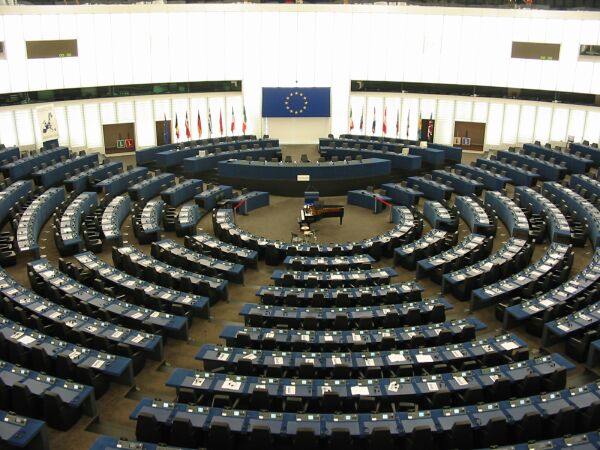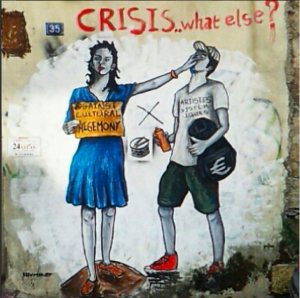By Lambros Fatsis
 We need to talk about Syriza. But it would be unwise to do so without perspective, or without history. We need perspective in order to gain perspective, thereby allowing us to triangulate rather than simply divide complex issues into neat bundles of meaning. And we need history in order to contextualise rather than distance ourselves from the origins of the events we seek to discuss.
We need to talk about Syriza. But it would be unwise to do so without perspective, or without history. We need perspective in order to gain perspective, thereby allowing us to triangulate rather than simply divide complex issues into neat bundles of meaning. And we need history in order to contextualise rather than distance ourselves from the origins of the events we seek to discuss.
In the meantime, it is imperative that we resist much of the noise that surrounds discussions about the new kid on the European bloc, namely Greece’s newly formed government which was borne out of a peculiar coalition between the self-styled radical left-wing Syriza party and the populist right-wing ANEL (Independent Greeks). What is interesting about much of this “noise” is the eerie silence that has hushed up any coherent explanation of how to make sense of this odd couple, especially in the non-Greek media coverage and public discourse alike. Behind that silence lurks a complex tangle of polarities, dualisms, enclosures and paradoxes that informs both the electoral result per se, as well as the very rationale that brought it forward. This is where history becomes useful.
Syriza’s rise in historical context
Emerging out of the shadows of its previous existence as a province of the Ottoman Empire, Greece was born as a nation in the mid-19th century and grew up in various stages of turmoil, beginning with the country’s War of Independence from the Ottomans (1821-1832) and the intermediate civil wars of 1823- 1825 (Filikoi vs. Kotzabasides between 1823-4 and Ydraioi vs. Moraites between 1824-5), succeeded by a disastrous sequence of events that include World War I, the Balkan Wars, the Greco-Turkish War of 1919-1922, the turbulent inter-war period of 1923-1940, the Italian and German Occupation during World War II, the Greek civil war of 1946-1949, and the military junta of 1967-1974.



![Brexit[2]](https://blogs.lse.ac.uk/eurocrisispress/files/2015/03/Brexit2-300x171.jpg)
 The European Commission has been a leading proponent of this participatory turn, and in the last decade it has introduced a range of instruments for improved consultation and dialogue with civil-society representatives, including ad hoc and online consultations, public hearings, and institutionalised consultations in advisory committees and business test panels.
The European Commission has been a leading proponent of this participatory turn, and in the last decade it has introduced a range of instruments for improved consultation and dialogue with civil-society representatives, including ad hoc and online consultations, public hearings, and institutionalised consultations in advisory committees and business test panels. We started by dividing the parties according to whether they were Pro-Memorandum (Pro-M) or Anti-Memorandum (Anti-M).[2].
We started by dividing the parties according to whether they were Pro-Memorandum (Pro-M) or Anti-Memorandum (Anti-M).[2].

 While the victory of Syriza has turned everybody’s attention to Greece these days, the new radical populist left is on the rise elsewhere as well, above all in Spain with local and national elections coming up in 2015. Even beyond the radical left, social-democrats have started to be more outspoken against European austerity and neoliberal policies.
While the victory of Syriza has turned everybody’s attention to Greece these days, the new radical populist left is on the rise elsewhere as well, above all in Spain with local and national elections coming up in 2015. Even beyond the radical left, social-democrats have started to be more outspoken against European austerity and neoliberal policies.

